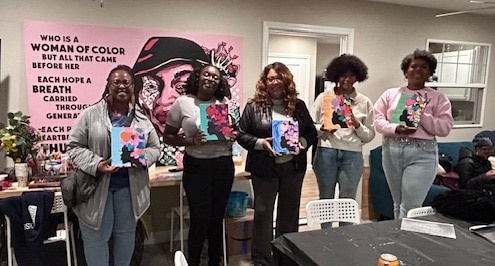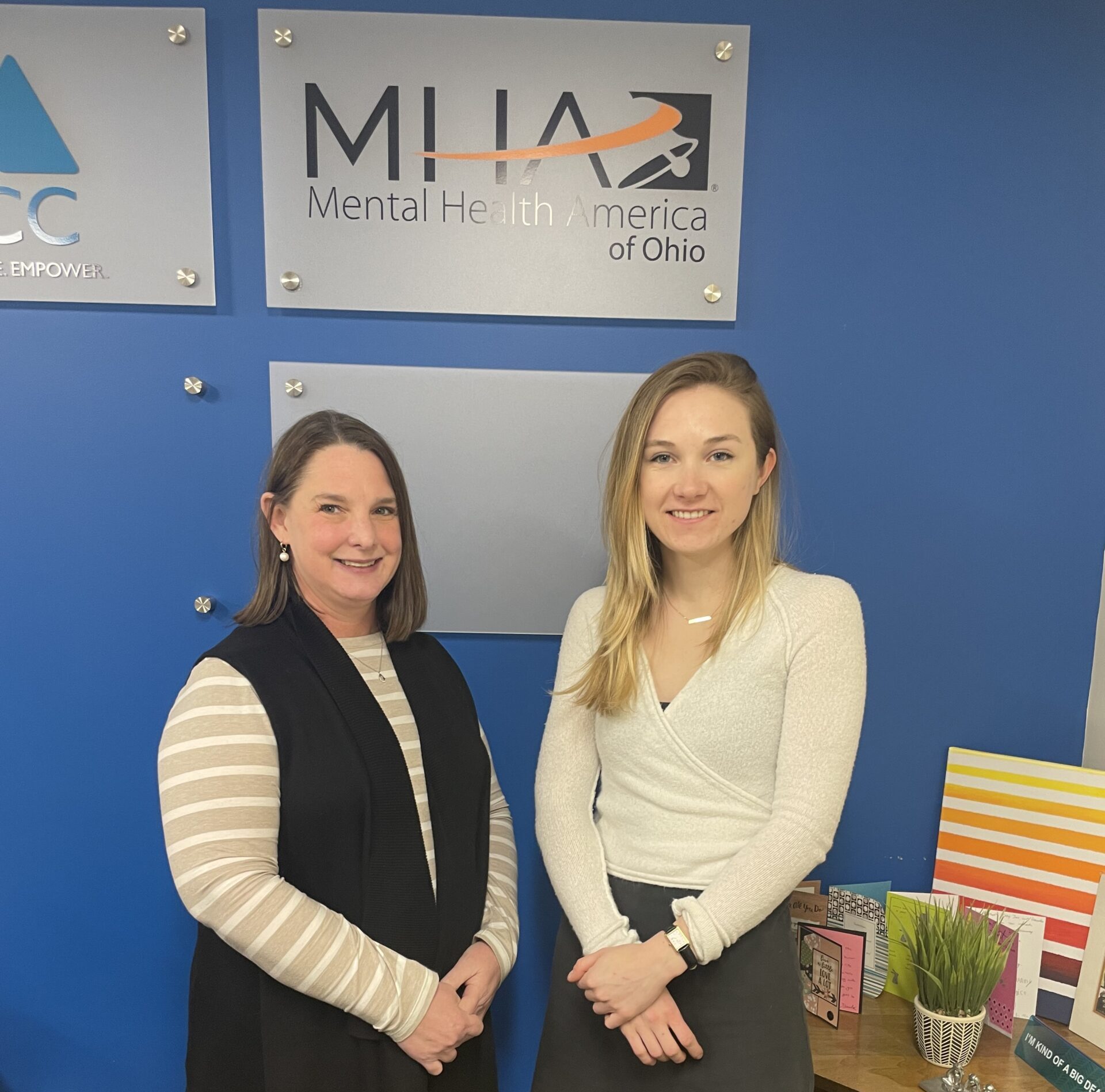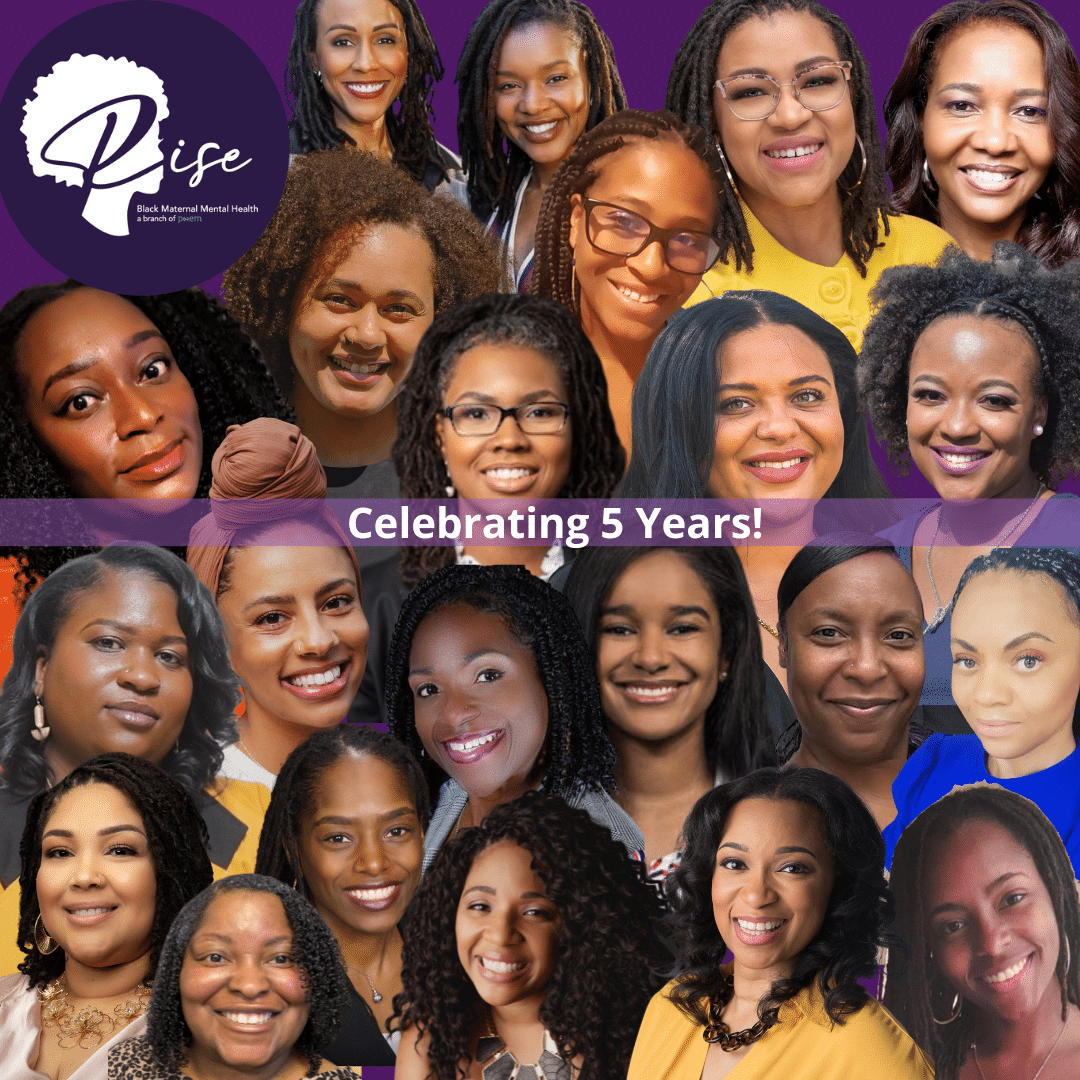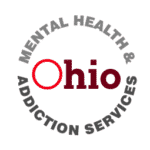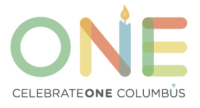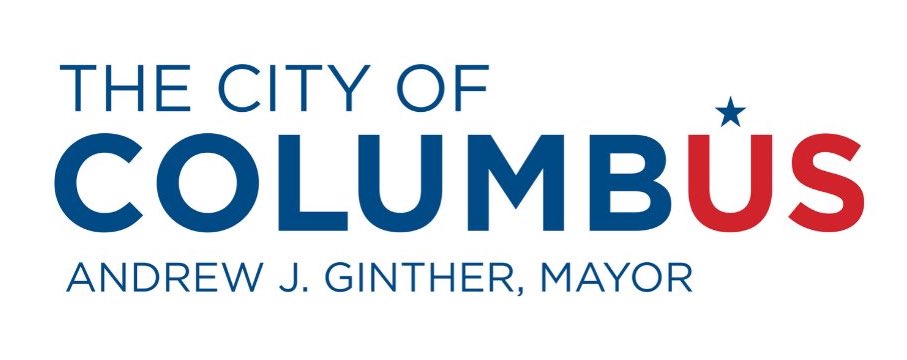Content warning: Some or all parts of this reading may be triggering.
How were you connected with POEM Rise?
A doctor’s office brochure
Tell us about your pregnancy and postpartum journey. How did your experiences impact your mental health?
For someone who didn’t really know much about what postpartum [depression] was, it was like a hurricane, and it all hit me at once. I was unfamiliar with the signs and symptoms I should look for, and I was also going through a tough time with a lot of losses, and grieving through that. Adding an unplanned pregnancy to that made my life a whirlwind. I mentally checked out. I wasn’t good at expressing my feelings or asking for help at the time. When I went to the doctor’s office for a check-up after, I was given the Edinburgh Postnatal Depression Scale (EPDS) to assess for depression. Usually, I am not honest when I fill out those forms. For once, I checked the boxes of how I actually felt, and that was my first time admitting that I needed help. My doctors prescribed me medications for depression and anxiety, and recommended POEM. I was very hesitant at first, but I knew I needed help from all angles if I was going to make it through. I was concerned because as an African American, our health always seems to fall through the cracks. I had preeclampsia and did not know it. I was at a family function, went to sleep, and knew something was wrong because I had not felt the baby move. I went to the hospital, and my blood pressure was extremely high. I was rushed to labor and delivery, I had papers thrown at me to sign, and before I knew it, my baby was here.
During the 14 years after I gave birth to my first child, the only thing the doctor had to tell me about the experience was “don’t have any more babies until you lose weight.” My health, again, went through the cracks. With my second pregnancy, I was very unsure. I was not sure if I was being cared for in the way I needed to be. I went to all the appointments and did everything the way I was supposed to, and was still struggling with heavy depression and anxiety. I felt like I was putting on a mask every day at work. I tried my best to hold it together because I still had to be there for my daughter and my son that was on the way. I had preeclampsia again and my son had to be taken to the NICU. I didn’t know when I would see my baby again, and the feelings of depression and anxiety did not go away or get better. I wondered when it would finally stop. If anything, it got worse. I wasn’t producing milk, and I tried to get help from the lactation consultant and nurses, but all they could say was that it was due to stress. They only had input from a medical standpoint, and not of a mother or human.
Were there any forms of support you found beneficial to you in your journey?
[Rise] Support group on Mondays kept me going and gave me something to look forward to. Being in a room with people who looked like me, sounded like me, and had similar experiences was my safe space, since I was isolated from family and friends. My son finally came home at 3 months old; he is 5 months old now.
Are there any words of wisdom or encouragement that you’d like to offer other birthing persons?
For other Black mothers and birthing people, remember that this journey is yours, so how loud you want to be, how quiet you want to be, is your choice. You make the decision if you want to share it with the world or with those who are closest to you. Not all journeys are meant to take everyone with you. Sometimes you have to walk it alone and that’s OK. When you’re on a journey, the most important thing is to put one foot in front of the other, and as long as you keep moving, it will get better.



